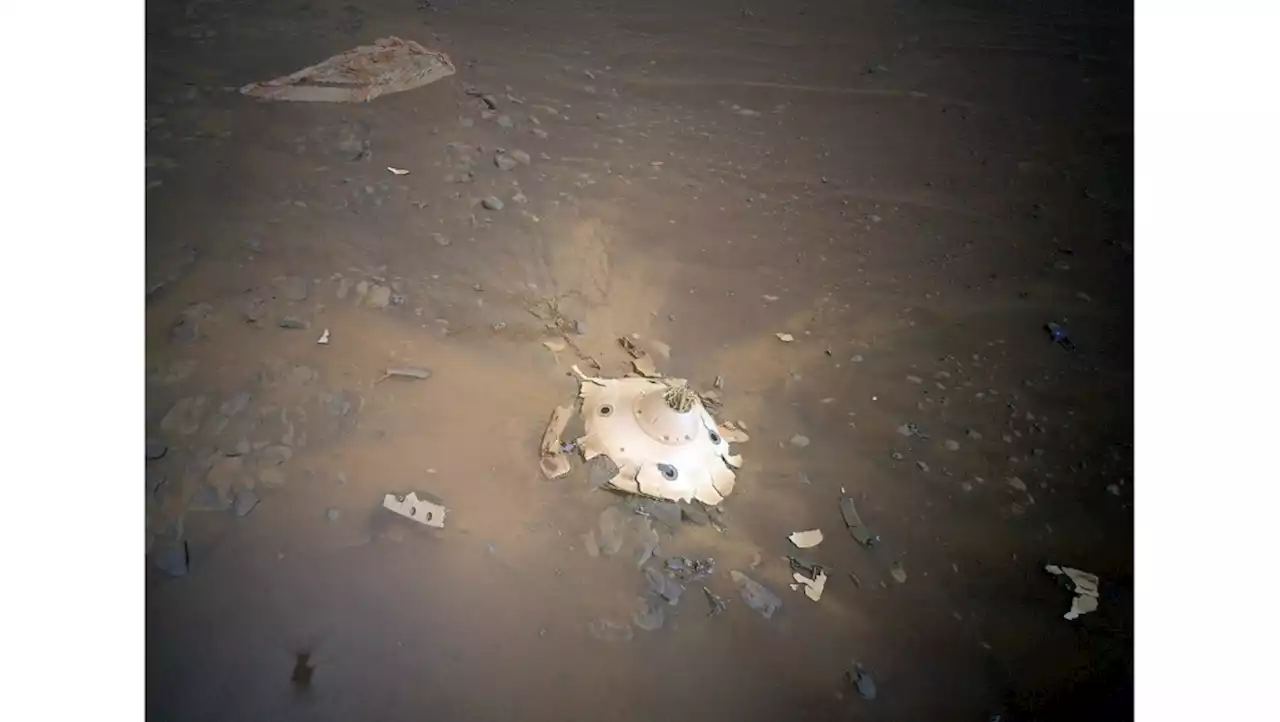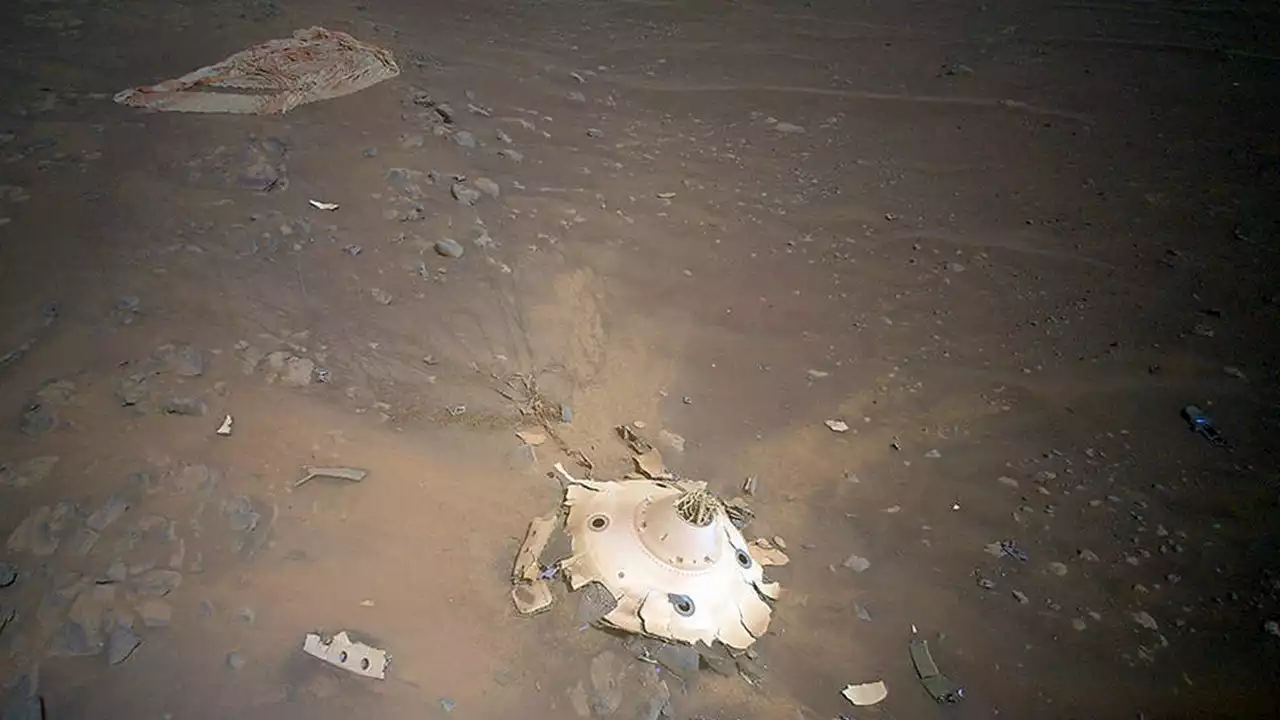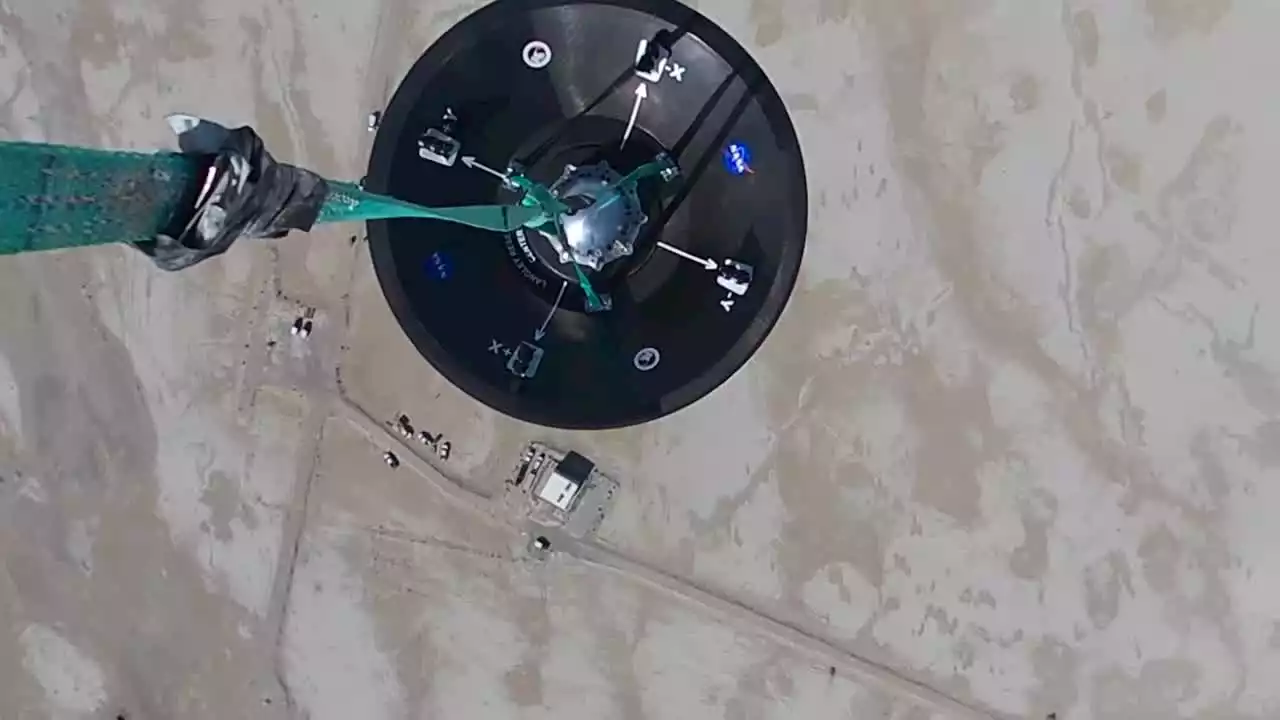Samples from Mars are expected to return to Earth in 2033.
is part of a larger effort to return samples to Earth collected by the Mars rover Perseverance during its more than year-long mission.NASA is working with its counterparts at the European Space Agency to develop two landers for the mission, which will collect Perseverance’s work and return to Earth.
The spacecraft are not expected to launch until at least 2027 and 2028 and return with the samples five years later. The materials gathered in the hermetically sealed tubes are expected to give scientists a glimpse of the origins of the Red Planet and help determine where life exists beyond Earth.The agency says it’ll hold public meetings to explain why the U.S. Air Force’s Utah Test and Training Range is the best option to return the samples.Back in 2006,
brought materials from a comet back to Earth in a capsule that plunged into the atmosphere at 28,600 mph.Samples from Perseverance’s mission on Mars won’t reach Earth until at least 2033.
United States Latest News, United States Headlines
Similar News:You can also read news stories similar to this one that we have collected from other news sources.
 JPL-made Ingenuity helicopter spots wreckage of Perseverance rover’s landing gear on MarsThe Ingenuity helicopter has captured a unique bird’s-eye perspective of the gear that helped land the Perseverance rover on Mars.
JPL-made Ingenuity helicopter spots wreckage of Perseverance rover’s landing gear on MarsThe Ingenuity helicopter has captured a unique bird’s-eye perspective of the gear that helped land the Perseverance rover on Mars.
Read more »
 Iceland emerging as popular practice site for moon and Mars explorationThe nation wants to be an important part of humanity's next giant leap.
Iceland emerging as popular practice site for moon and Mars explorationThe nation wants to be an important part of humanity's next giant leap.
Read more »
 Wreckage on Mars is not a flying saucer — NASA explainsIt’s a bird, it’s a plane, it’s a...UFO?
Wreckage on Mars is not a flying saucer — NASA explainsIt’s a bird, it’s a plane, it’s a...UFO?
Read more »
 NASA's Mars Helicopter Spots Wreckage of Rover Landing GearThe interplanetary photo op was conducted earlier this month by the helicopter, NASA reported.
NASA's Mars Helicopter Spots Wreckage of Rover Landing GearThe interplanetary photo op was conducted earlier this month by the helicopter, NASA reported.
Read more »
 Ingenuity helicopter takes photos of debris field on MarsThe Ingenuity helicopter has captured a unique bird's-eye perspective of the gear that helped land the Perseverance rover on Mars.
Ingenuity helicopter takes photos of debris field on MarsThe Ingenuity helicopter has captured a unique bird's-eye perspective of the gear that helped land the Perseverance rover on Mars.
Read more »
 Explorers Could Build Bricks on Mars with Bacteria and PeeThe famous Russian rocket scientist Konstantin Tsiolkovsky once said, “Earth is the cradle of humanity, but one cannot remain in the cradle forever.” Tsiolkovsky is often hailed as one of the fathers of rocketry and cosmonautics and remembered for believing in the dominance of humanity throughout space, also known as anthropocosmism. His work in the … Continue reading 'Explorers Could Build Bricks on Mars with Bacteria and Pee'
Explorers Could Build Bricks on Mars with Bacteria and PeeThe famous Russian rocket scientist Konstantin Tsiolkovsky once said, “Earth is the cradle of humanity, but one cannot remain in the cradle forever.” Tsiolkovsky is often hailed as one of the fathers of rocketry and cosmonautics and remembered for believing in the dominance of humanity throughout space, also known as anthropocosmism. His work in the … Continue reading 'Explorers Could Build Bricks on Mars with Bacteria and Pee'
Read more »
